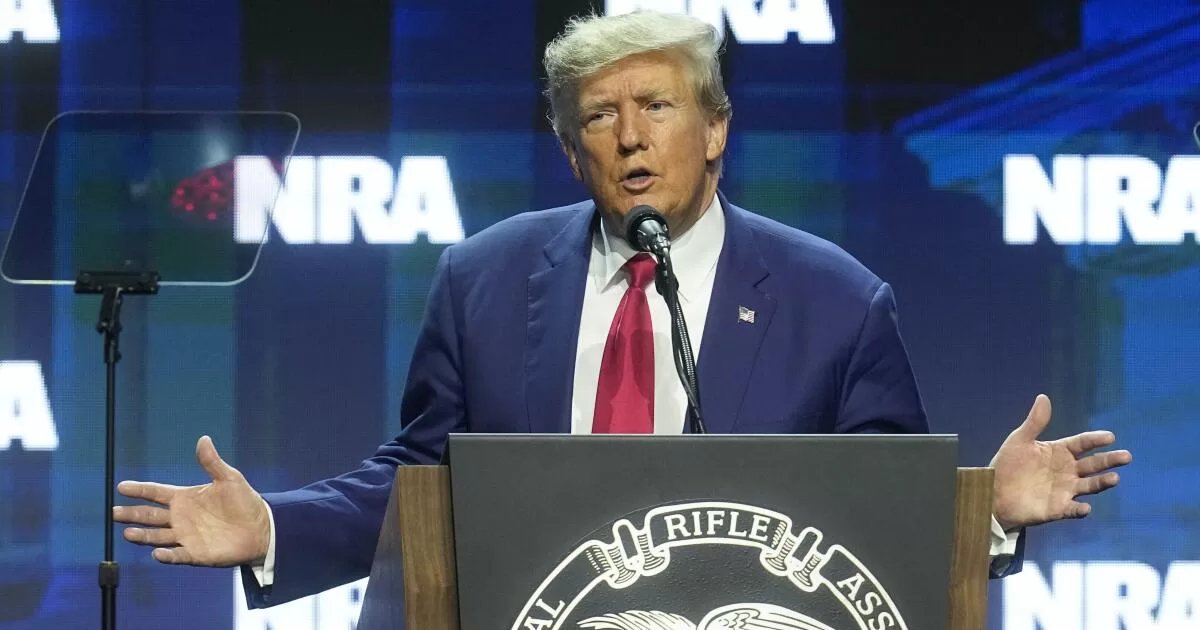Last week, we gathered with other scholars at Ground Zero for a summit on terrorism and political violence. The mood was somber, not only because of reflections on 9/11 but also because of pained predictions of violence to come. It would have surprised nobody in attendance had they been told another assassination attempt against the former president would occur days later.
This was, of course, not merely the second assassination attempt against Donald Trump. There have been many more plots over the past several years — aimed at politicians of all stripes — that never reached the point of gunfire being exchanged. The plots are indicative of a broader zeitgeist: We are under heightened threat of political violence.
For instance, recent Republican rhetoric against a community of Haitian migrants in Springfield, Ohio, led to dozens of bomb threats against that community, closing schools and hospitals. In October 2022, a man attacked the husband of former House Speaker Nancy Pelosi, a Democrat, during an attempt to kidnap her. In 2020, authorities foiled a plot to kidnap Democratic Gov. Gretchen Whitmer of Michigan.
There is a distinct and frightening possibility of a violent wave of assassination attempts and domestic terrorism now breaking, not only against the former president but also against Democratic officials and groups, Trump scapegoats and Trump supporters.
During this presidential election, both Democrats and Republicans are framing the other side as an existential threat to the country, and so unstable individuals are being inundated with messages that have exacerbated an already volatile situation. This feeds violence before election day, but that won’t be the end: Imagine what could happen following the election.
If Vice President Kamala Harris wins election in November, there is serious concern over violence waged by Trump supporters who may believe that the election was rigged, or “stolen,” as Trump claimed in 2020 after he lost the popular vote and the electoral college, leading to the “Stop the Steal” movement and fueling the Jan. 6, 2021, Capitol insurrection.
If Trump is elected, many expect a visceral reaction from segments of the far left, including some who may resort to violence. Trump’s election could also embolden any followers prone to violence, which could fuel more terrorism against immigrants, people of color, women, LGBTQ+ people and others. If he continues to praise the Jan. 6 terrorists and even pardons those who were convicted, Trump would be inviting continued vigilantism.
Because we have witnessed two assassination attempts against Trump in the past two months, some Republicans are wondering how to reverse the apparent threat. They are right to call for the lowering of the political temperature, and they should reflect on their own party’s role in promoting violent rhetoric — the creeping normalization of extremely violent political speech, what some have called “mainstreaming extremism.” Trump himself not only dubbed the Jan. 6 defendants “hostages,” “political prisoners,” “martyrs” and “warriors,” but also reacted to the assault on Paul Pelosi with a jest in a campaign appearance: “We’ll stand up to crazy Nancy Pelosi, who ruined San Francisco — how’s her husband doing, anybody know?” In 2020, he publicly told members of one far-right white supremacist group to “stand back and stand by.”
In response to the latest assassination attempt, vice presidential candidate JD Vance mused, “The big difference between conservatives and liberals is that no one has tried to kill Kamala Harris in the last couple months.” His analysis, simply put, is outright wrong. For instance, in western Virginia, a 66-year-old man was arrested for threatening Harris. His social media posts included the warning, “AR-15 LOCKED AND LOADED.” This is just one of countless threats and plots; most investigated by the Secret Service are not publicly disclosed.
Politicians have contributed to the violent uptick not only with rhetoric but also with their actions and inaction in recent decades on gun policy, bringing us to this moment when assault weapons are widely available to any single individual with a grievance.
The fact is, the United States remains in the eye of the perfect storm — a highly polarized political climate in which extreme rhetoric is prized over moderation, in a country awash in weaponry and susceptible to disinformation and digital manipulation.
Combating the threat of political violence is the duty of every American, but it is also the responsibility of our elected officials to tamp down the violent rhetoric. It will be difficult to navigate this crisis, and doing so effectively requires bipartisan condemnation of political violence from across the ideological spectrum.
Jacob Ware is a research fellow at the Council on Foreign Relations where he studies domestic and international terrorism and counterterrorism. Colin P. Clarke is the director of research at the Soufan Group, an intelligence and security consulting firm in New York City.
